In the Western world, milk typically refers to cow's milk and is a creamy, slightly sweet-tasting liquid created in a mother cow's body.
Most people grow up drinking this type of milk, so the idea that nuts or plants make "milk" can feel confusing.
Almond milk is a plant-based beverage made from almonds and water.
Although some varieties are creamier than others, it is generally less viscous than cow's milk and has a nuttier taste.
Most commercial manufacturers label this beverage "almond milk" instead of juice, but some people disagree with this decision.
Explore whether almond milk is a juice, milk, or another type of beverage and whether or not the industry should refer to it as milk.
Quick Answer
Is almond milk juice?
Almond milk is not considered a juice according to the FDA. However, the FDA allows almond milk to be labeled as milk.
What Do the Terms "Juice" and "Milk" Mean?
Before diving into the specifics of almond milk, defining the terms "juice" and "milk" is helpful.
Although this seems simple, it can help explain why almond milk is labeled as milk or whether it needs another name.
What is Juice?
There are different ways to define juice, including the everyday understanding and the FDA definition.
According to the FDA, juice is a watery liquid extracted or expressed from a fruit or vegetable.
Juice drinks are typically made by pressing or squeezing the liquid out of these foods, resulting in a thin, drinkable liquid.
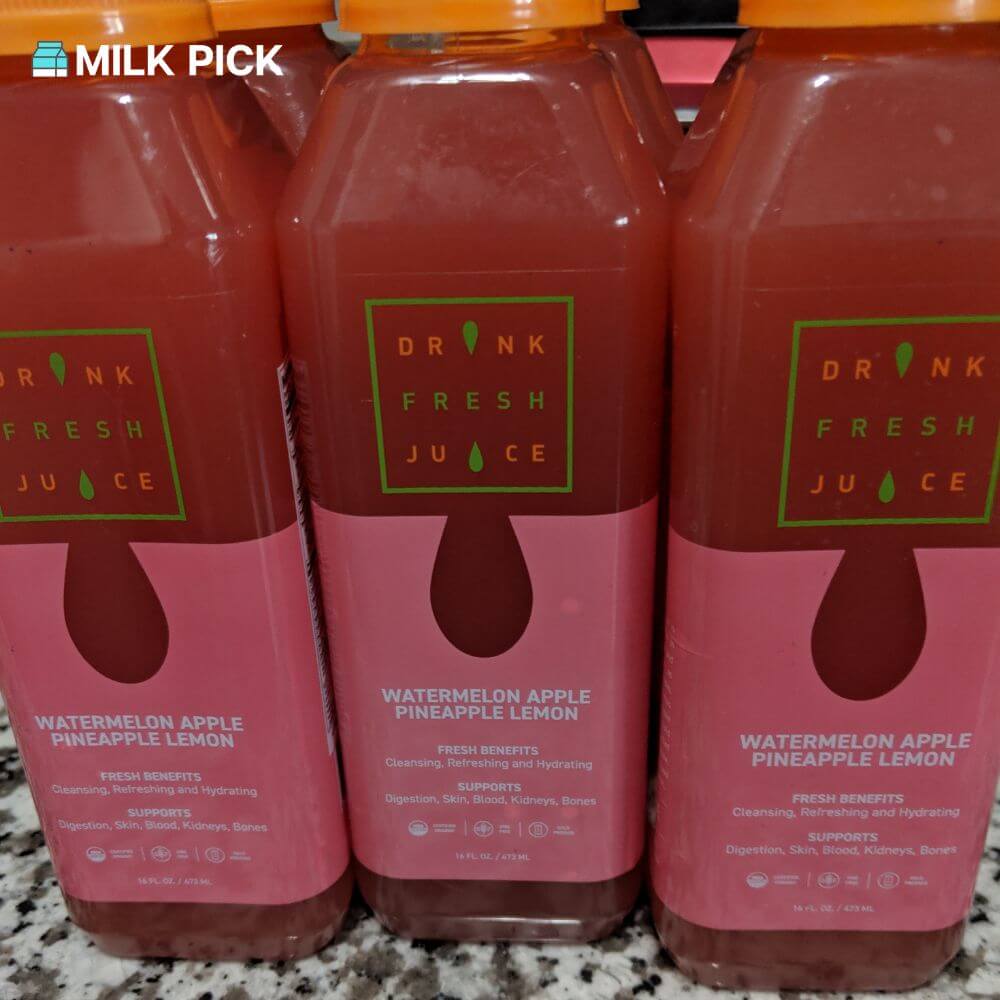
The FDA has specific regulations for processing, packaging, and labeling juice, including:
- Pasteurization to reduce the risk of foodborne illness,
- Including the juice type, the manufacturer's name, and their address on the label.
The common definition of juice comes from the word's Latin origins.
In Latin, "ius" refers to a "soup" or "broth."
"Jus" and its meaning transferred to Old French and then English, where it had come to refer to the liquid extracted from fruits or vegetables used to add flavor or moisture to foods or dishes.
The term juice has since evolved to the widely accepted colloquial use of referring to drinkable juices. The most common include:
- Apple juice
- Tomato juice
- Orange juice
- Grapefruit juice
- Cranberry juice
- Pineapple juice
What is Milk?
Like juice, the official definition of milk can refer to the FDA's qualifications or the commonly understood meaning of the term.
"Milk" is one of the oldest words in all of language, having roots in Pro-Indo-European "melg," which means "to wipe" or "stroke" (like milking a cow).
"Meluks," the Proto-German version of the word, eventually transferred to Old English "meloc," then "milc" in Middle English, and finally, Modern English "milk."
It's commonly understood that milk comes from animals like cows, goats, sheep, and even humans.
These mammals have mammary glands that produce a creamy white liquid full of nutrients the young need to survive.
Milk naturally contains carbohydrates, proteins, fats, vitamins, and minerals that match that species' young nutrient requirements.
According to the FDA, milk is a "lacteal secretion" from cows and is free from a substance called colostrum.
The FDA has particular regulations for milk regarding the milk-solid versus fat content, pasteurization, and other processing, packaging, and labeling elements.
The Controversy Over Almond Milk's Name
For several years, most commercial manufacturers have labeled plant-based milk alternatives as "milk."
This has created controversy - so much so that in 2018, the FDA allowed open commenting on labeling and naming alternative milk.
A common complaint is that the strict regulations for processing and labeling cow's milk don't apply to non-dairy milk products, giving their manufacturers an unfair advantage in the marketplace.
Some people also object to the name "almond milk" because it can mislead consumers to believe that all almond milk brands have the same nutritional content as dairy milk since it's labeled as milk.
While almond milk is a healthy beverage and can contain added calcium and other nutrients, plain almond milk is relatively low in natural vitamins and minerals or macronutrients like protein.
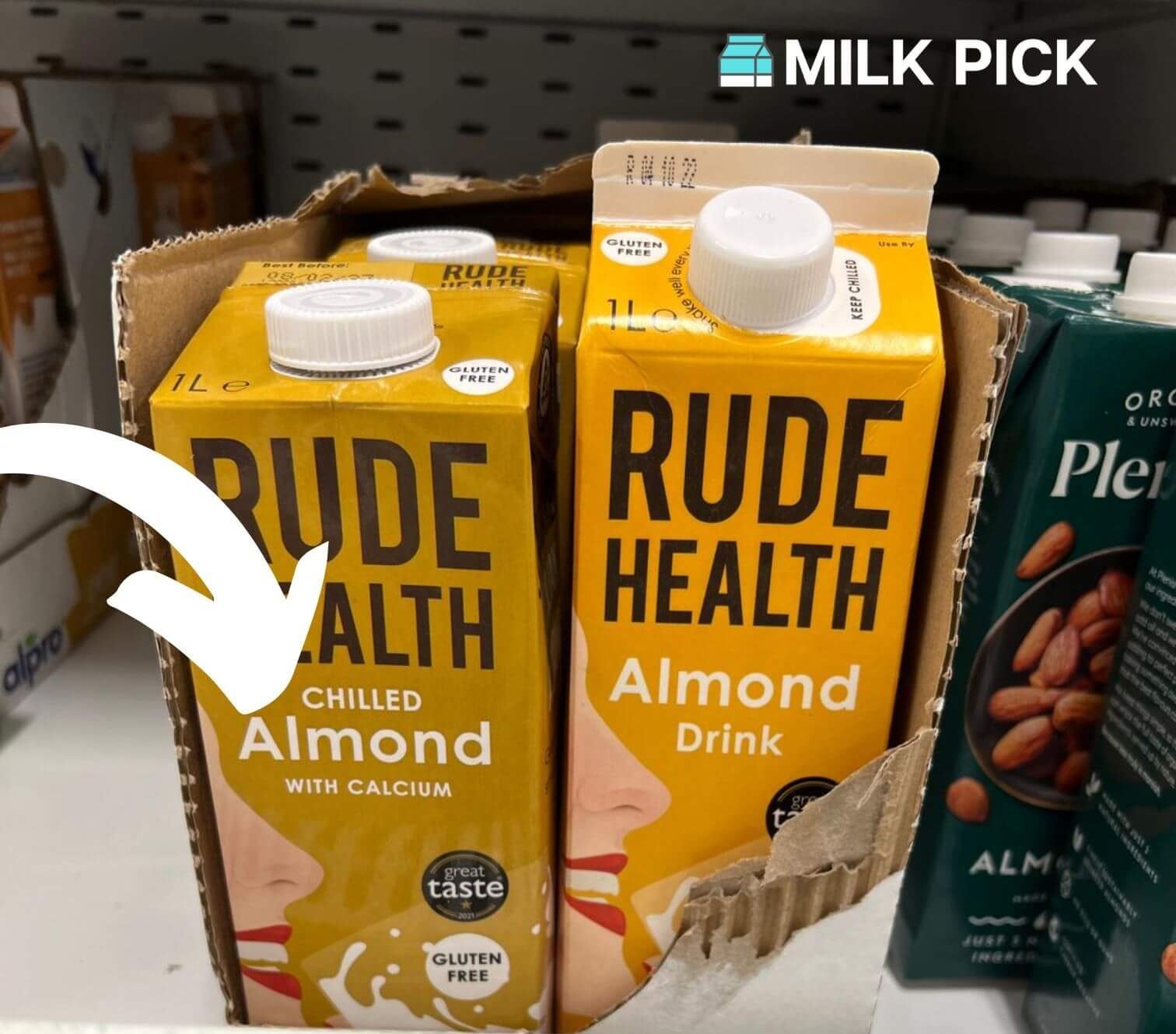
Those who have a problem with the name almond milk say that if a consumer buys an alternative milk product without knowing that its nutrient values differ from dairy, they may not meet their recommended daily allowance of elements like Vitamin D or calcium.
The main issue with the name "almond milk" is that since the beverage doesn't meet the FDA's definition of the term and isn't held to the same manufacturing standards, it should not be able to carry the label.
What is Almond Milk?
In light of the controversial name - what type of drink is almond milk? Almond milk is made of raw, blanched almonds and water.
Some manufacturers (and recipes if you're making it at home) include other ingredients like salt, sweeteners, oils, emulsifiers, and fortified nutrients.
While the process may vary in industrial settings, the general steps for making almond milk include:
- Soak raw almonds in water, typically overnight
- Rub skins off almonds and place them in a high-speed blender
- Add filtered water, typically at a ratio of 4:1, water to almonds
- Add additional ingredients if preferred (vanilla, dates, etc.)
- Blend until almonds until ground, and the liquid is a pale, off-white color
- Strain the mixture through a cheesecloth to remove almond pulp
- Store the resulting creamy, white liquid in an airtight container for 3 to 7 days in the fridge
Most commercial brands will also pasteurize their almond milk product to elongate their shelf life.
Refrigerated store-bought brands typically stay good in the fridge for 7 to 10 days, while shelf-stable versions are good for about 6 months to a year, depending on their expiration date.
Is Almond Milk Juice?
So, is almond milk juice?
Most people consider juice as a liquid expressed from a fruit or vegetable. There are arguments for or against almond milk being labeled a juice, including:
Pros:
- It comes from a plant-based food found in nature
- It may loosely meet the colloquial definition of juice
Cons:
- Botanically, almonds are seeds (though most people call them nuts), not a fruit or vegetable
- It does not meet the FDA definition of juice
- It is not the result of extraction, pressing, or squeezing of an ingredient
- Unless strained to remove the pulp, the liquid is not readily drinkable
Is Almond Milk "Milk"?
There are also arguments for and against almond milk as "milk".
While milk seems to be one of the best labeling options, there are a few pros and cons that support calling almond milk "milk" versus giving it a different label:
Pros:
- It works well as a direct milk substitute in baking, drinks, and sauces
- It looks like milk, having a similar consistency and appearance
- Some fortified brands contain a similar nutrient profile to milk
- It was created as an alternative to dairy milk, so the name matches its intended purpose
Cons:
- It does not meet the FDA's definition of milk
- It does not come from the mammary glands of a mammal
- It does not naturally have the same nutrient profile as cow's milk
Is There a Better Label For Almond "Milk"?
Since almond milk does not seem to fall into the category of juice or milk, there may be a better way to label it to avoid confusion.
Some brands call their almond milk products by alternative names to differentiate them from dairy.
For example, some brands refer to their product as an "almond beverage" rather than almond milk.
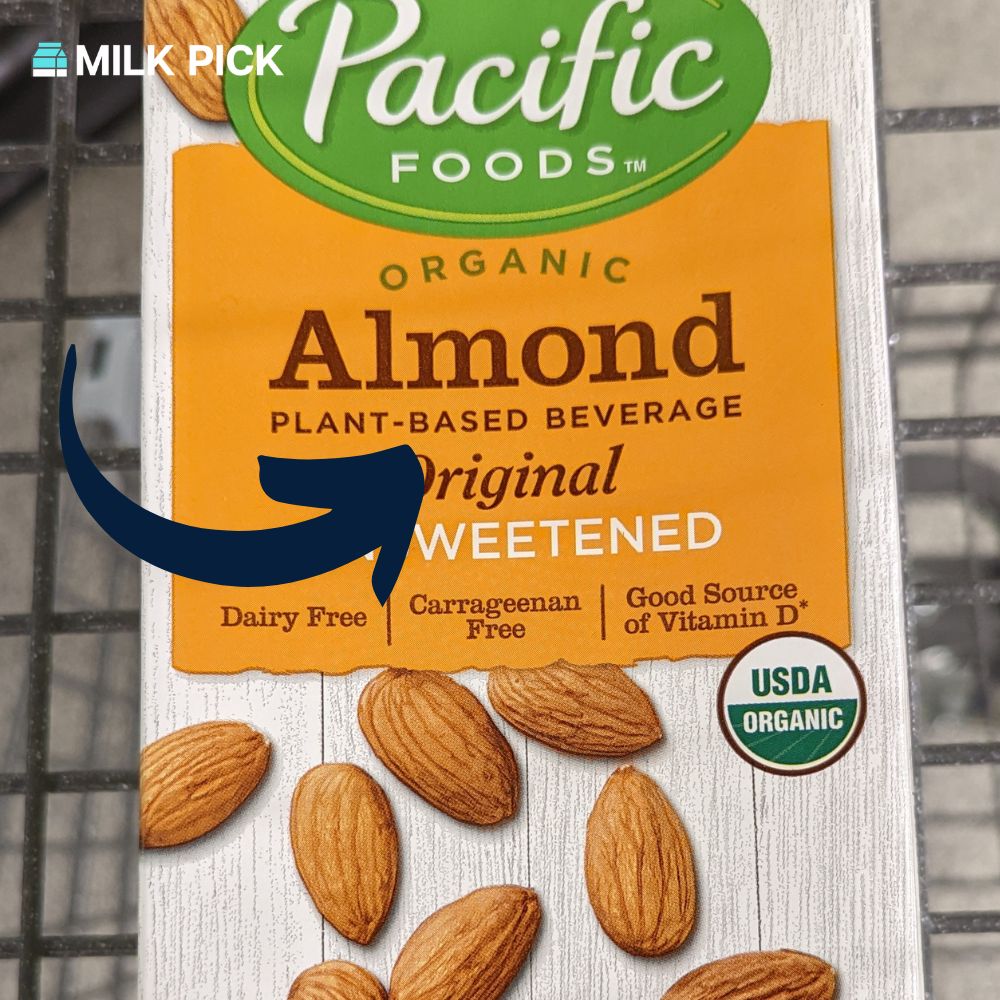
Other brands use the term "almond drink", while brands like Beber, New Barn Organics, and Three Trees use "almondmilk" as one word, which helps differentiate the product from simply dairy milk.
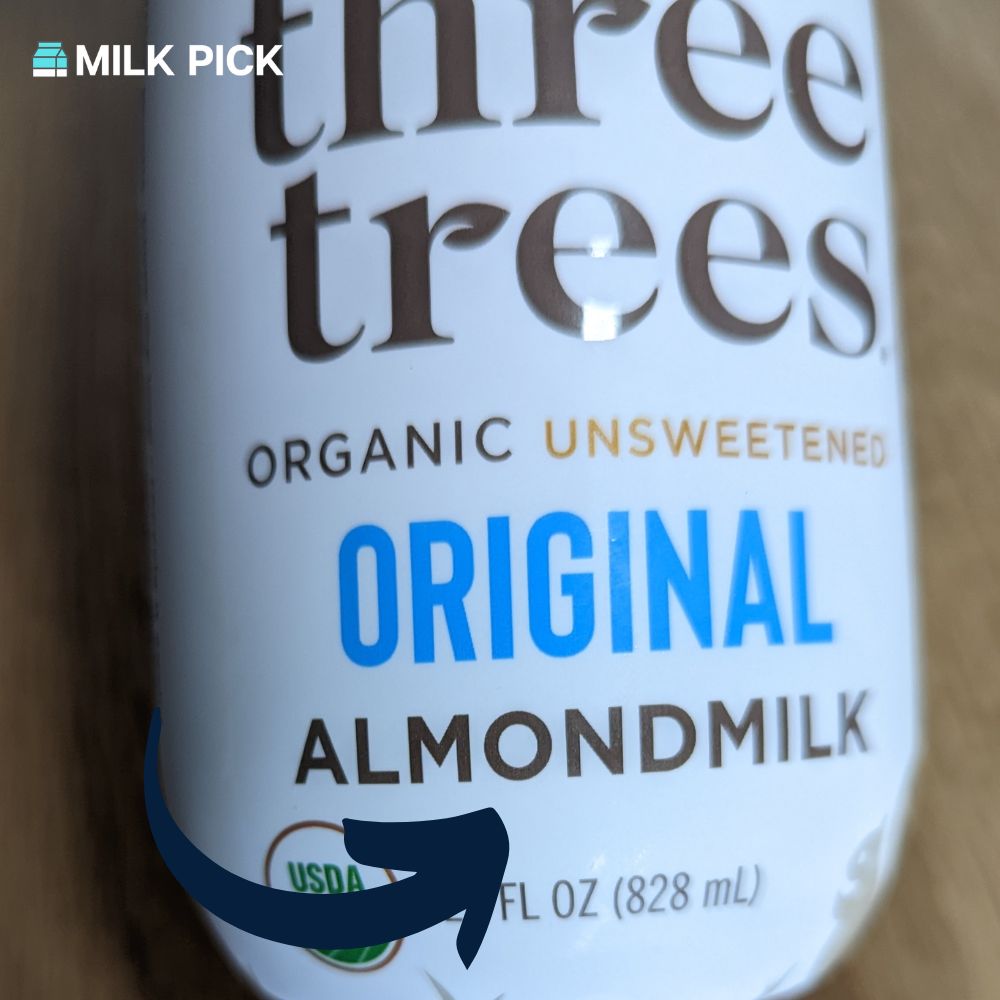
Elmhurst 1925 uses a different approach and labels their almond milk as "Milked Almonds," referring to it as unsweetened plant milk.
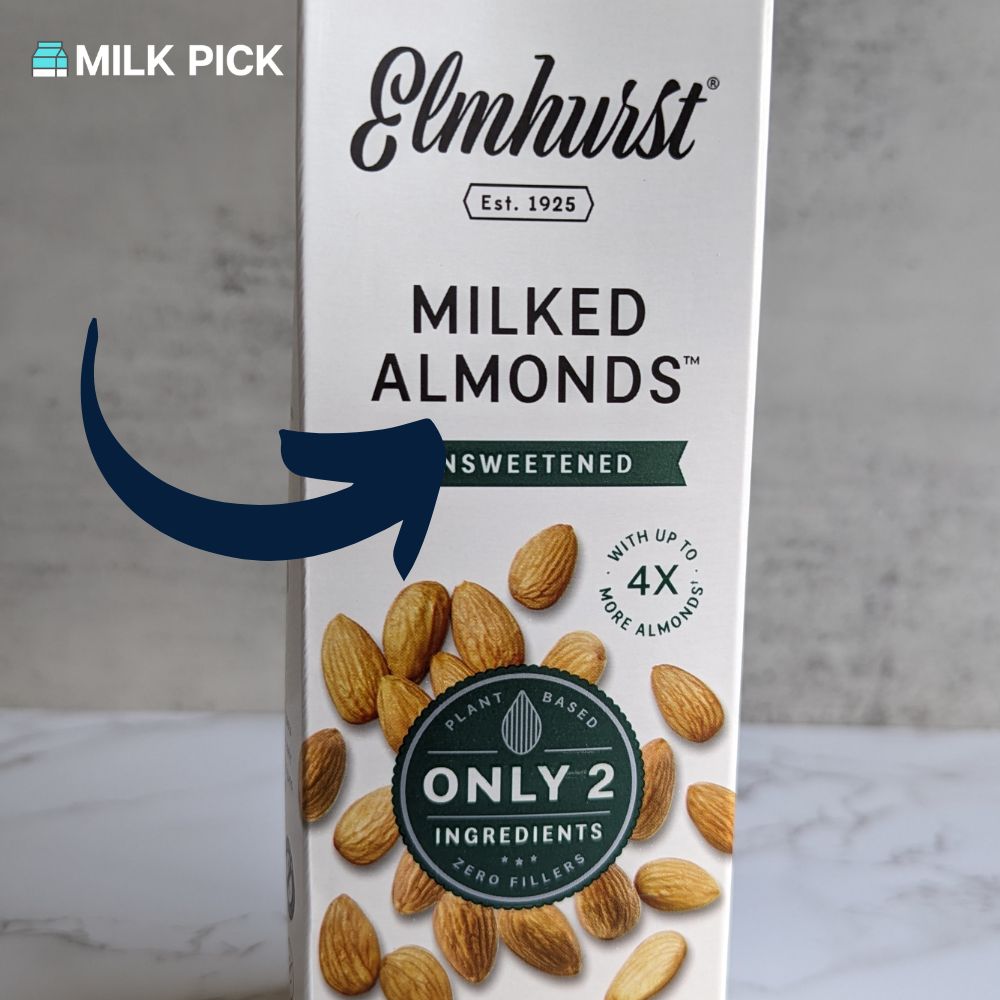
Drink Categories
One of the reasons it's been challenging for manufacturers and the FDA to decide on labeling requirements is that almond milk really doesn't fall into any "accepted" drink category.
In addition to milk and juice, consider these other potential beverage categories for almond milk:
- Water - water is a basic, clear beverage typically sold as filtered, distilled, or flavored. Almond milk is an emulsion of tiny almond particles and water, which means labeling it as water is not the most accurate option.
- Soft drinks/soda - these drinks are carbonated beverages, like soda or tonic water, usually sweetened with syrup and other flavorings. Almond milk is not carbonated and does not provide the same taste, mouthfeel, or nutritional profile as these beverages.
- Tea and coffee - tea and coffee are distinct beverages, but each is made by using hot water to steep or brew tea leaves or coffee beans to access the natural plant essences. Coffee and tea have caffeine and are closer to water than milk or juice in texture and drinkability. Almond milk can be used as a creamer in these beverages but would not fall into the tea or coffee category.
- Alcohol - alcohol is a group of beverages made by fermenting grain (or fruit in the case of wine) like hops, barley, or even rice. Almond milk's manufacturing process is much different than that of beer, wine, or hard liquor, and it does not have the same effect on the body, meaning it doesn't fall into this drink category.
The Future of Almond Milk as a "Milk"
While almond milk is not technically milk, it seems this label is likely the most reflective of the beverage's taste, texture, and use among consumers.
People buy almond milk as an alternative to dairy milk, whether to lower their carb intake for Paleo or Keto or because they struggle with lactose intolerance. Some prefer almond milk's taste and lighter calorie count over a heavier dairy product.
The almond "milk" label is likely here to stay; however, the FDA is making changes to labeling requirements.
On February 22, 2023, the FDA announced that it had drafted labeling recommendations for plant-based milk alternatives based on feedback received during the open commenting in 2018.
The proposed guidelines include that plant milk manufacturers use voluntary nutrient statements that provide consumers with a comparison of nutrients they can get from the product versus dairy milk.
For example, "this product contains less Vitamin D than dairy milk."
While these guidelines are not final, it is evident that the label of almond "milk" will continue to dominate the market. However, new regulations may soon help you as a consumer pick a beverage that has the right nutrient profile for your dietary needs.
